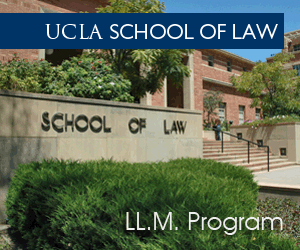Overview Profile Photos Programs Partners News Events
Entertainment Law LLM
Dates
Start Date: January
| Application Deadline: | Applies to: |
|---|---|
| November 30 | All Students |
| Admission Decisions released: Rolling Admission | |
Start Date: September
| Application Deadline: | Applies to: |
|---|---|
| July 31 | All Students |
| Admission Decisions released: Rolling Admission | |
Details
Course Language: English
Entry Requirements:
LLB/JD or equivalent law degree,
Non-law graduate degree where law is a substantial element,
Non-law graduate degree where the subject area is a substantial element,
Non-law graduate degree with working experience in the subject area
| Tuition fee: | Applies to : |
|---|---|
| GBP 9000 | Domestic Students |
| GBP 13000 | International Students |
| GBP 9000 | EU Students |
Scholarships available for: All Students, Domestic Students
Course website:
http://www.westminster.ac.uk/courses/subjects/law/postgra...
What the school says:
About
Entertainment is one area which we can all associate with in some shape or form, and the interaction of this exciting subject with the law produces an interesting and eclectic mix. This course combines the academic analysis and commercial practice elements of entertainment law. The diverse nature of entertainment law will enable you to follow a number of specialisms, all of which are underpinned by the issues of contract and intellectual property.
The course will suit graduates from a law background, or those from a non-law background who have significant relevant experience. It will give you the opportunity to explore new ideas, thoughts and academic experiences within a supportive environment.
The course aims to develop your understanding of how key fields within the entertainment industries operate, to assess the impact of the law upon them, and give you the practical skills necessary to succeed in a career in entertainment and media law.
As an entertainment law graduate you will be able to develop a career in a whole range of professions within the entertainment industry. Perhaps the most popular of these are roles in sports, music, and media and communications law. The subject gives a modern edge to traditional law subjects and is well respected by employers.
Areas of Law
You may also be interested in the following Schools:



 Université de Lausanne
Université de LausanneFaculty of Law Unique postgraduate programme
in English, one year of full-time
flexible schedule options








 Institute for Law and Finance
Institute for Law and FinanceFrankfurt International character
Interdisciplinary curriculum
Strong practical focus





 Case Western Reserve
Case Western ReserveUniversity School of Law Three LLM specifications
Students from 70 countries
Individual attention and guidance






 Boston College
Boston CollegeLaw School World-class legal education
Extensive curriculum
Unparalleled individual attention








 University of Heidelberg
University of HeidelbergUniversity of Chile Investment, Trade and Arbitration
English and Spanish
Santiago de Chile and Heidelberg


